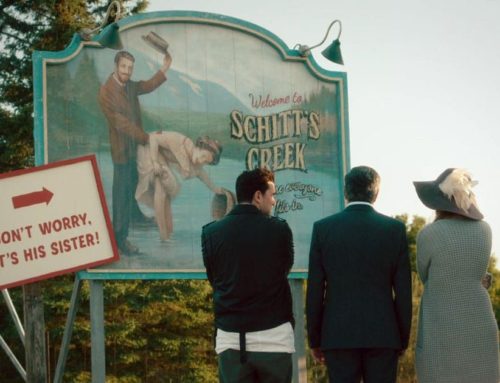2020 is almost over (thankfully!). What are you going to do for 2021? How are you going to up make next year a better year for you and your business? How are you going to become more financially stable as an artist?
Below are five reasons you need to invest in your music business knowledge so 2021 can exceed your expectations.
1) You Want to Connect Better With Your Audience
On a fundamental level business requires two things: 1) something to sell; and 2) customers willing to purchase it. Successful businesses excel at fulfilling the needs and desires of the their client base. For musicians and teachers of all stripes this means understanding who your audience is and what it is they want. And then keep them coming back for more.
Making the art you want to make is great. Everything we create should come from a place of authenticity. However, how are you serving those who want to commission you, come to your concerts, buy your scores and recordings, or in any way give you their money?
Successful businesses learn about their audience through market research, asking questions, testing products & services, and asking two questions:
- What does my audience want?
- What does my audience need?
After answering those questions comes an even more important one, “Are they able and willing to spend money on what we’re offering?” Too many times I work with composers and musicians who find the answer to the last question to be, “No.”
Growing in your business knowledge means understanding the difference between needs and wants and learning how to find and connect with those who can pay you for it.
2) You Want to Make a Difference
Do you want to make a difference in the world? Then operate your music activities like a business.
Businesses and private enterprise do an incredible amount of work, and give a tremendous amount of money, to serve their communities. Here are some case studies:
- A carpet cleaning service providing meals for a homeless shelter.
- An association of small businesses in a community become the backbone of service, charitable giving, and employment.
- Rather than offering discounts for Black Friday sales, this business chose to give the equivalent amount away as donations to help their community.
Incredibly, Guy Fieri (a celebrity chef and business owner) raised $21.5 million dollars to support unemployed restaurant workers. As this MSN article states, this private individual and his business, has done more to help his community of restaurant workers than Congress.
The benefits to your business for operating with a service mindset and striving to make a difference are numerous. It includes publicity, tax write-offs, increased audience engagement, increased employee job satisfaction, and more. But most importantly it means you’re making a positive difference to the communities you engage with.
We often see regional and major orchestras do a benefit concert or two most seasons. There’s often a food drive concert where you can get a discounted or free ticket by bringing non-perishable food. But how many composers, solo performers, music teachers, studio owners, or engineers are making a difference? Charitable giving and making a difference to your community IS part of your business.
I’m currently coaching a composer who is putting together a concert where the tickets are pay-what-you-want, but 50% goes to an organization the composer is partnering with that serves the homeless. THAT is making a difference with your art.
3) You’re the Only One Who Cares About Your Business
No one cares as much as you do about the art you make. To paraphrase Seth Godin: If you stopped making your art today, would anyone notice?
Investing in your business knowledge is the best way to make sure you can continue to make your art for years to come. And that means making money making your art. You could be a composer, recording artist, performer, teacher, or whatever, but if you’re not growing in your business you are just a hobbyist and the IRS will treat you as such.
You’ve invested years, decades even, honing your craft and learning the fine skills of performance, listening, theory, improvisation, composing, and teaching. Now it’s time to take those skills and bring them to the world so you can engage your audience and make a difference in your community.
And here’s the kicker: unless you receive a paycheck for the use of the skills you’ve developed YOU ARE OPERATING A BUSINESS. And you need to think like a business owner.
Business owners invest their business knowledge by learning finance and book keeping, marketing, PR, and sales.
- A chef may have spent years in school and decades apprenticing. When they go to open their own restaurant THEY ARE OPENING A BUSINESS. If they don’t manage the business well the restaurant will close no matter how great the food is.
- A medical doctor has years of post-graduate study, post-docs, and residencies to go through all while incurring $200,000+ in student loans. If the doctor wants to start their own clinic or private practice THEY ARE OPENING A BUSINESS. If they don’t manage the business well the clinic will close no matter how skilled or helpful the doctor is.
- A lawyer endures years of rigorous post-graduate study and then spends a year or more prepping to study the bar exam all while accumulating multiple hundreds of dollars in student loan debt. If the newly barred lawyers wants to open a private practice to serve their community THEY ARE OPENING A BUSINESS. If they don’t manage the business well the law practice will close no matter how many people they helped.
Yet, for musicians we spend decades learning our craft and accumulating massive student loan debt and then magically think we are going to get an orchestral position, opportunities for performances, commissions, and a full teaching studio. We are not taught that we are OPENING A BUSINESS once we hang our shingle and offer our services.
No one cares more than you do about the success of your business. Investing in your business knowledge could make all the difference.
4) You Need to Grow Your Talent Stack
Your talent stack is the unique set of skills, experience, and knowledge that makes you unique. It’s also something you should continually be adding to.
Once you graduate from music school you are not done learning. As performers we all know this and that is why we still practice and challenge ourselves with new pieces.
Yet, how are you are growing in your business skills? What are you doing to increase your talent stack when it comes to understanding what money is and how it works, what a business is and how it works, how the economy operates, and how you can apply business knowledge to your creative skill set?
Successful business owners—and that includes successful musicians—are always investing in their knowledge of business.
5) You Want to Make More Money
There’s a pervasive myth that needs to be destroyed. And that is that real artists starve.
It comes from a misguided early Romantic notion that in order to make real art—art that matters—the artist must suffer financially. The idea has been so deeply tied up with creativity that I know many creatives that feel guilty for making money making their art. This needs to stop.
There is absolutely no reason that you can’t make a living, and a good one at that, by making your art. But simply making art by itself won’t get you there. You have to have an audience that wants to spend money on your art, and you have to grow your relationship with them. These are business concepts.
Recently, I walked through an art gallery in Vail, CO. Vail is a destination ski resort dominated by luxury condos and high-end living. Everything is expensive. The people that live and vacation there—in other words, the audience—have a lot of money and they like spending it. Oil paintings I might find in my local gallery for $150 were priced at $800. A 12 inch high bronze sculpture was over $4,500. And clearly people are purchasing the art at those prices.
Are the artists in that gallery selling out? Or are they doing a fantastic job of knowing who their audience is and then meeting their needs and desires?
You want to make more money making your art? Then treat yourself like a business and invest in your business knowledge.
Bonus) You NEED to Take Massive Action
If you truly want to invest in your business knowledge you have to pair that with taking action.
In the Bible we are taught that faith without works is dead. Meaning, you can say you believe but if you don’t act out that belief you actually have no belief at all. We can re-phrase that to say business knowledge without action is a failed business.
What action are you going to take in 2021 that will make the difference for you and your music business? My guess is that you need to take massive action. Something that scares you and pushes you outside of your comfort zone.
Do you know what you need to do? Do you know how to scale your business, find your audience, engage your community, handle your finances, market yourself, brand your business, set up PR, and ALL THE THINGS?
In order to help you make 2021 the best year ever for your music business I’ve organized the Ultimate Music Business Summit. It’s a three-day event with over 21 teachers giving 21 high-leverage lessons you can apply to your music business TODAY!
You can get all the lessons and watch the panels for free by signing up for a ticket at musicsummit.biz. But if you really want your learning to go deeper you’ll want to get the VIP Access Pass. It will give you life-time access to the videos, MP3 audio versions of the lessons, and a PDF transcription of the lesson. A tremendous amount of content and business know-how for $67.
Repetition is the key to learning and growth (hello, scale and arpeggio practice) and having the opportunity to watch these videos, listen to the lessons, and read the content over and over will help you take the Massive Action you need to take and so you can invest in your business knowledge. You can get your VIP Access Pass here.
The Portfolio Composer is sponsored by Dorico by Steinberg, the future of scoring. Visit www.steinberg.net/tpc for a free 30-day trial version.





